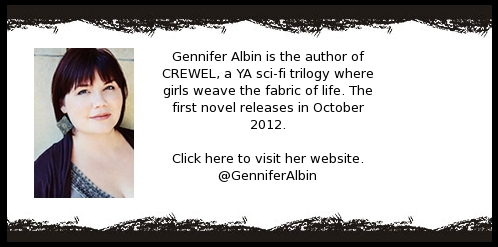The suitcase - Is it his soul? Another symbol? One thing's for sure we want to see in that box.
Also this: The bar at my local theatre (headed there this afternoon)
To really get your mileage with a MacGuffin, it must be plausible, but it should serve as a catalyst. It gets the story going, and it shows up at times to give it a boost, but we don't dwell on it. Characters don't spend whole scenes analyzing it. Cynical Rick doesn't question why the heck Charles De Gaulle would sign those papers or why anyone would care. We don't see into the suitcase. Some of my favorite macguffins come courtesy of J.J. Abrams - various Rimabauldi artifacts. Even why they're stuck on the island is a MacGuffin. It provides a structure to tell a story and build characters, but don't look too closely or you might see the smoke and mirrors. Incidentally, I think this is why some people got so frustrated with Lost.
For better or worse, building an entire series around a MacGuffin can backfire when people expect a profound revelation at the end. I'd learned my lesson with Alias.
The show was never about Rimbauldi and his prophecies. It was about Sydney and her relationships. The rest was MacGuffins.
So when my Critique Partner and I were discussing Alcatraz the other day and he said, "I think I'll keep watching to see what the mystery is," I reminded him it was going to be a MacGuffin. But there you have it, four episodes in and the show has him hooked on the promise of the mystery, on the promise of the MacGuffin.
So my advice about using MacGuffins:
1. Make it interesting, but don't dwell on it.
2. Use it to enhance your characterization and relationship building.
3. Don't be surprised or offended when someone is upset that your MacGuffin didn't pay off. It's probably going to happen and that's ok.
What other MacGuffins come to mind when you think about movies, television, or books? Do you like them or do they frustrate you?

_01.jpg)








6 comments:
I didn't know the official name for macguffins, but this was incredibly interesting. Thank you so much for writing about this!
There are so many tricks of the writing trade whose names I don't know, but I could list. I'm sure there's a list on Wikipedia or somewhere I could read. :)
I took McKee's course once (STORY) and he pointed out then how the letters of transit were bogus. But we all buy it, because, as you suggest, it's set up early, and we just want to see what will happen between Rick and Ilsa.
I've seen it so many times and the letters never bother me.
This is one topic I don't think I've seen covered before. Great job on it. I agree that in the end it is never big enough to carry a story, and if the rest of it is lacking, the audience will ultimately feel disappointed at the reveal. But if there were other well-handled elements surrounding the characters and their goals, relationships and obstacles overcome, then it feels more like icing on the cake. :)
Happy Friday!
Angela @ The Bookshelf Muse
Thanks for writing about this, Gennifer -- it's a great device common in mystery writing (so we gave you a shout-out over at Sleuths Spies & Alibis!) but it's fun to see how it crosses over into other genres too.
M- technically it's a film term, but I think it applies to literature too.
Lissa - I'm jealous. I'm fascinated by screenwriting. I think I may take a class or two on it.
Angela - Definitely. It can't carry the whole story, but it can get you going.
Diana - Thanks for the shout-out! Mystery writing is a bit of a mystery to me, but I bet there's more crossover than we imagine.
Clever post! I always thought of a MacGuffin as something people were chasing down, but you seem to be using it also as a symbolic object and also as a red herring. Anyway, it's making my mind percolate, so that's a good thing!
Post a Comment